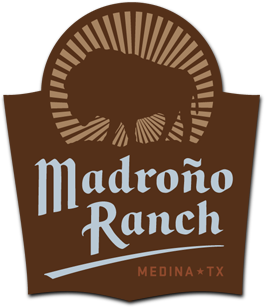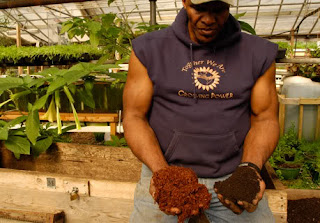This summer we attended a screening of Fresh, a documentary that highlights the efficiency and productivity of organic farming and the casual cruelty and hidden costs of industrial agriculture. Along with about a hundred others, we watched the film under the pecan trees at Boggy Creek Farm while eating locally sourced vegetarian picnic dinners provided by the Alamo Drafthouse, one of the screening’s cosponsors. (The others were Edible Austin and our friend Steve Kinney’s Front Porch Project.)
This kind of setting induces feelings of satisfaction that can all too easily morph into self-righteousness, and there’s no question that this event was a classic case of preaching to the choir. One of Boggy Creek’s neighbors’ front yards frequently sports a sign demanding housing for the homeless, not food for the rich. There’s no question that the momentum behind the local/sustainable food movement has been slowed by the argument that it’s a movement for the dainty tastes of the economic elite.
Fresh delivers a powerful counterpunch—maybe even a KO—in the person and work of Will Allen, whose nonprofit Growing Power Inc. operates two acres of greenhouses in working-class Milwaukee, producing mountains of affordable, healthy food, and trains countless inner-city residents to convert empty lots into thriving organic food centers.
The son of a sharecropper, Allen believes with every fiber of his 6’7″ body that healthy food is primarily a social justice issue: income should have no bearing on access to quality food. He himself is a happy consumer of doughnuts and doesn’t condemn those who have no alternative to KFC, but his passion for fresh food is altering the urban landscape and the food choices of thousands of people who might otherwise face a future of obesity and diabetes.
We’re no experts on food pricing, but we would guess that Growing Power enjoys a pricing “advantage” over other organic farmers because of grant money and a sizable volunteer labor pool. Agribusiness is able to control costs through government subsidies. What if the playing field on which organic and industrial agriculture compete were level? If organics were subsidized? If the costs of the ecological devastation caused by agribusiness monocultures, manure cesspools, and the health issues resulting from fast foods were factored into the cost of “cheap” food?
Before the 1962 publication of Rachel Carson’s Silent Spring, many considered conservation a hobby for the wealthy. Carson made clear the connection between environmental issues and civil rights. We hope that people like Will Allen and movies like Fresh will do the same for the local/sustainable food movement.
After the screening at Boggy Creek, Edible Austin sold copies of the movie on DVD, along with licensing agreements allowing purchasers to show it to groups of up to twenty people—neighborhood gatherings, church groups, book clubs, etc. Through this bottom-up, grass-roots, guerilla marketing campaign, the producers hope to spread the word far beyond those hundred or so predominantly white, relatively wealthy faces under the trees. We bought two copies, one for Robert and one for us.
What we’re reading
Heather: Hugh Fearnley-Whittingstall, The River Cottage Meat Book
Martin: Dennis McNally, A Long Strange Trip: The Inside History of the Grateful Dead

